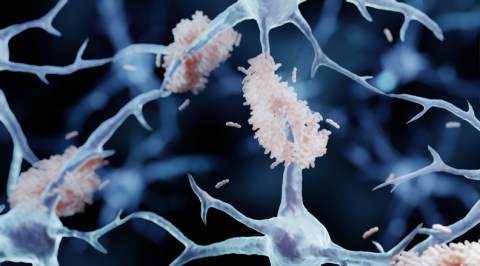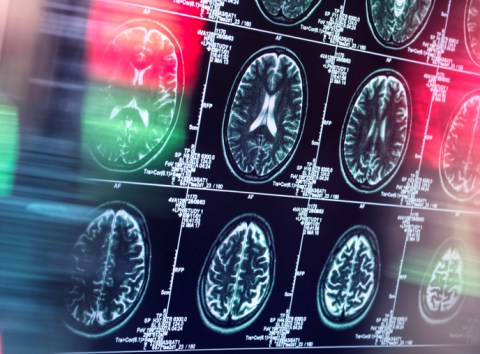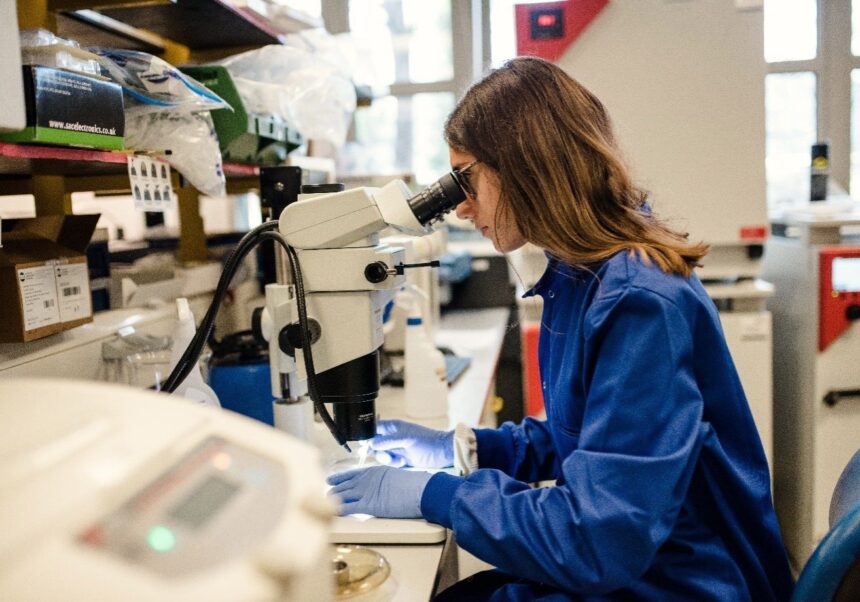It was found that Alzheimer’s might be passed from person to person after individuals who had human hormones decades earlier started developing the illness.
It is thought that five instances of Alzheimer’s are related to medical care received as youngsters.
The recent study offers the first documented cases of Alzheimer’s disease “caught” during a medical procedure in a living individual.
In these cases, it appears to have been due to doctors administering children with a human growth hormone taken from dead donors.
According to the University College London (UCL) and University College London Hospitals (UCLH) researchers, the findings may have important implications for understanding and treating Alzheimer’s disease.
And although the procedure that led to this transmission was stopped in the 1980s, experts recommend medical procedures should be reviewed to ensure rare cases of Alzheimer’s transmission do not happen in the future.
Alzheimer’s, the most common form of Alzheimer’s, is caused by the build-up of the proteins in the brain, and usually occurs later in adult life with no specific family link. More rarely, it can be an inherited condition that occurs due to a faulty gene.

The people described in the study had all been treated as children with a type of human growth hormone taken from dead donors (cadaver-derived human growth hormone or c-hGH).
There is no suggestion the protein, amyloid-beta, can be passed on in day-to-day life or during routine medical or social care.
Between 1959 and 1985, c-hGH was used to treat at least 1,848 people in the UK and used for various causes of ‘short stature’ – when a child or a teen is well below the average height of their peers.
What are the signs and symptoms of Alzheimer’s disease?
In the UK, dementia is most frequently caused by Alzheimer’s disease.
Dementia is the name for a group of symptoms associated with an ongoing decline of brain functioning. It can affect memory, thinking skills and other mental abilities.
For example, someone with early Alzheimer’s disease may:
- Forget about recent conversations or events
- Misplace items
- Forget the names of places and objects
- Have trouble thinking of the right word
- Ask questions repetitively
- Show poor judgement or find it harder to make decisions
- Become less flexible and more hesitant to try new things
Later stage symptoms include increasing confusion and disorientation, obsessive or repetitive behaviour, or disturbed sleep.
Source: NHS
But the treatment was withdrawn in 1985 after it was found that some c-hGH batches were contaminated with infectious proteins which had caused Creutzfeldt-Jakob disease (CJD) – a rare and fatal condition that affects the brain – in some people.
After that, c-hGH was replaced with a synthetic growth hormone that did not carry the risk of transmitting CJD.
A variant of CJD was responsible for the ‘mad cow disease’ outbreak in the 1990s.
Lead author of the research, Professor John Collinge from UCL, said: ‘There is no suggestion whatsoever that Alzheimer’s disease can be transmitted between individuals during activities of daily life or routine medical care.
‘The patients we have described were given a specific and long-discontinued medical treatment which involved injecting patients with material now known to have been contaminated with disease-related proteins.
‘However, the recognition of transmission of [proteins] in these rare situations should lead us to review measures to prevent accidental transmission via other medical or surgical procedures.
‘Importantly, our findings also suggest that Alzheimer’s and some other neurological conditions share similar disease processes to CJD, and this may have important implications for understanding and treating Alzheimer’s disease.’
The latest study reported on eight people referred to the National Hospital for Neurology and Neurosurgery in London, who had all been treated with c-hGH in childhood, often over several years.

Five of them had symptoms of dementia, and either had already been diagnosed with Alzheimer’s disease or would otherwise meet the diagnostic criteria for this condition.
Another person met criteria for mild cognitive impairment.
The people were between 38 and 55 years old when they started having neurological symptoms.
Further tests supported the diagnoses of Alzheimer’s disease in two patients, and was suggestive of Alzheimer’s in one other person. Post-mortem analysis showed signs of Alzheimer’s in another patient.
Researchers say the unusually young age at which these patients developed symptoms suggests they did not have the usual Alzheimer’s, which is associated with old age.
In the five patients from whom samples were available for genetic testing, the team ruled out inherited Alzheimer’s disease.
Co-author Professor Jonathan Schott, from UCL, added: ‘It is important to stress that the circumstances through which we believe these individuals tragically developed Alzheimer’s are highly unusual, and to reinforce that there is no risk the disease can be spread between individuals or in routine medical care.’





